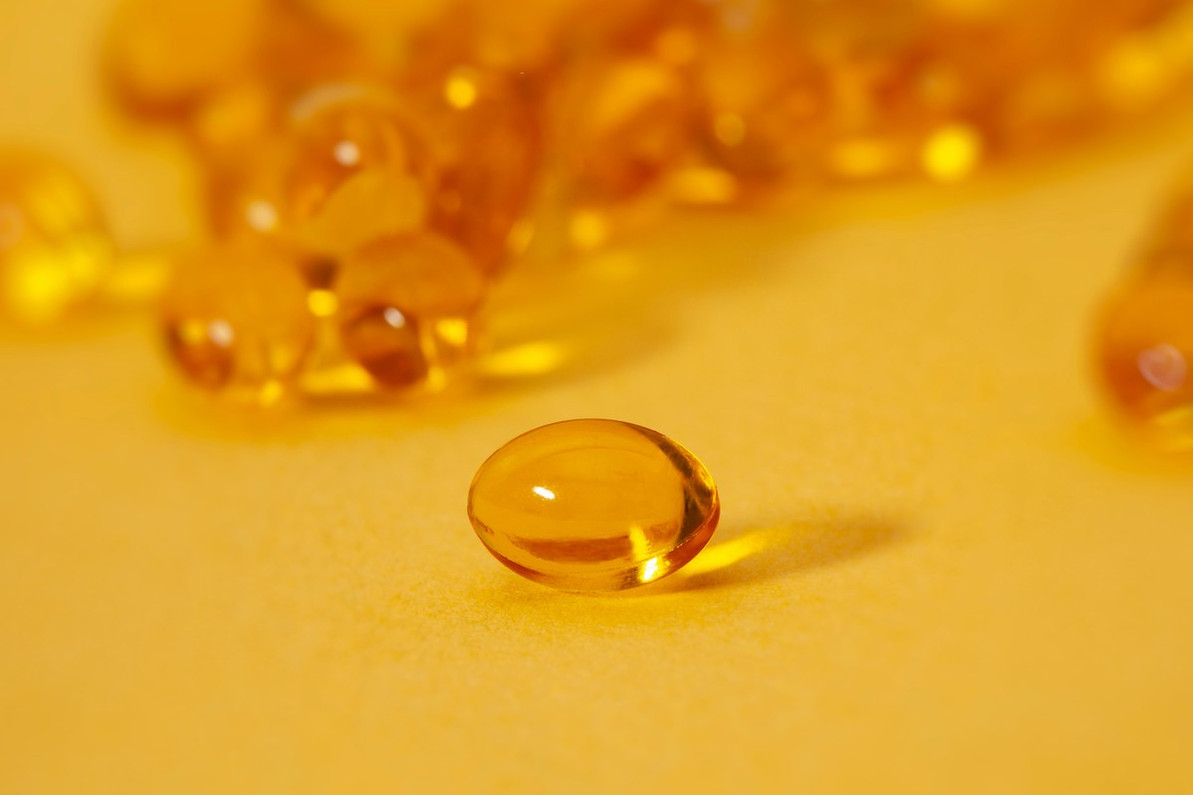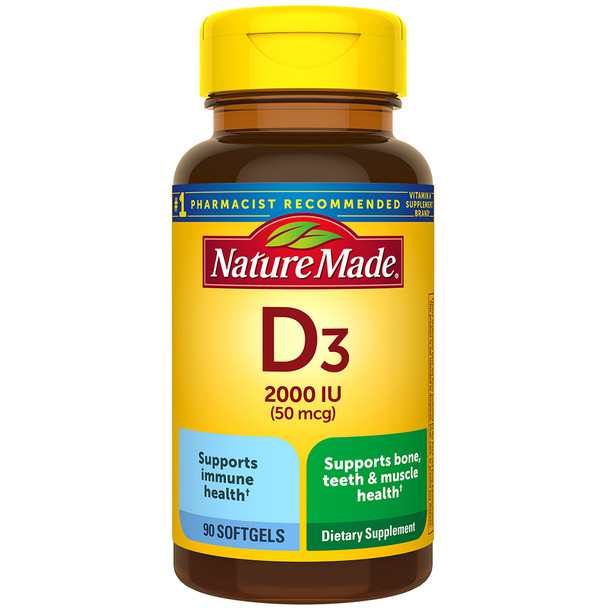The Best Vitamins & Supplements to Offset Winter Blues
According to the American Psychiatric Association, around 5% of adults here in the United States experience seasonal affective disorder. On top of that, there’s a significant chunk of people who wouldn’t necessarily get a clinical diagnosis of seasonal affective disorder but still experience the "winter blues."
Why Do We Get Winter Blues?
Several factors can contribute to seasonal affective disorder—more commonly known as the winter blues. Our natural energy levels change with the seasons, and fewer hours of sunlight alongside colder, wetter weather can make us feel more lethargic starting in the fall and peaking at the height of winter.
And when this happens, we often don't help ourselves. That's because we reach for comfort foods, which typically aren't the healthiest or most mood-boosting things we can eat.
But we don’t have to end up in a spiral of feeling low and then making ourselves worse.
If you can recognize the symptoms, you can make lifestyle changes and identify the best supplements for seasonal affective disorder to make you feel better.
What are the Symptoms of Seasonal Affective Disorder?
The symptoms of seasonal affective disorder and winter blues typically mimic those of clinical depression. You’ll often only get a seasonal affective disorder diagnosis if you suffer these symptoms for at least two consecutive years during the fall and winter months:
- Feeling sad
- Experiencing a loss of interest or pleasure in doing activities you usually enjoy
- Changes in your appetite, mainly eating more and craving high-carb foods
- Getting too much or too little sleep
- Having low energy or increased fatigue, even if you’re sleeping longer than usual
- Feelings of worthlessness or guilt
- Brain fog, leading to difficulty with concentration, thinking, and making decisions
- Thoughts of death or suicide, in extreme cases
How to Beat the Winter Blues
As with any mental health issues, the best way to deal with the winter blues is with a combination of lifestyle factors that will help you feel happier and keep you going during the darker seasons.
We’re shortly going to look at the best supplements and vitamins for seasonal affective disorder, but the other things you should be doing are:
Consider Light Therapy Treatment
Some brands’ light boxes are even clinically proven to treat the symptoms of seasonal affective disorder and the condition itself, so shop around for these online.
Try an Illuminated Alarm Clock
These illuminated alarm clocks simulate sunrise - and sunset in some cases - and can help you maintain a consistent circadian rhythm and bed/wake-up times during the fall and winter.
Get Plenty of Exercise
Outdoor activity and exercise can significantly reduce winter blues symptoms, especially if you do it in the sun.
Maintain a Balanced Diet
Don't overindulge in comfort foods; focus on eating plenty of fish, fruit, and vegetables and staying hydrated. Reduce refined and processed foods and foods with high levels of saturated fat.
What are the Best Vitamins for Winter Blues?
Here are some of the best supplements for winter blues that may help you feel better during the winter, particularly when you follow the other lifestyle changes suggested above.
While scientific evidence of the impact these supplements have on seasonal affective disorder itself is limited, there is robust evidence of their effects on the symptoms that contribute to the condition and winter blues in general.
Remember to consult with your physician before starting to take any new vitamins and supplements and to see them urgently if you're experiencing severe symptoms of depression during the winter or at any time of the year.
Vitamin D
While vitamin D has not been shown to aid seasonal affective disorder directly, research has shown a clear association between vitamin D deficiency and experiencing the winter blues.
Serotonin, vital for regulating our moods and sleeping patterns, also needs vitamin D to produce itself in our bodies.
As such, taking a supplement may help maintain your vitamin D levels during the winter months and have an additional effect on your serotonin levels to help ease some of your symptoms.
St John's Wort
St. John’s wort has long been used for easing symptoms of depression and anxiety, as well as for helping people get a better night’s sleep. So it could be a vital ally in beating winter blues.
While you should consult with your physician before taking any supplement, it is even more imperative you do so before taking St. John’s wort, as it is known to interact with and reduce the effectiveness of many medicines, including birth control pills, blood thinners, and some that are used for treating heart disease and some cancers.
Melatonin
Melatonin is another vital hormone that drives our sleep patterns, and its production can be adversely affected by the seasons as daylight hours change.
Poor sleep quality is known to be linked to depression – as well as a broad range of other conditions – so taking a melatonin supplement to help yourself get to sleep may be worthwhile.
You should also note that melatonin can have some side effects, so while it is an over-the-counter medication, it's another product you should discuss with your physician, especially if you continue to take it to help you sleep after winter.
Magnesium
Magnesium drives several bodily functions and is particularly important for mood regulation and brain function.
A 2020 study published in PubMed Central, based on research in animals, highlighted that our magnesium levels may reduce in the winter. It is also known that stress can lower our magnesium levels.
There is also some research that suggests that magnesium can reduce depression symptoms and improve sleep quality, while ongoing studies are looking at whether magnesium can directly help with seasonal affective disorder.
Omega 3
Omega 3 is essential for normal brain function and for powering our neurotransmitters. Maintaining high levels of Omega 3 can reduce feelings of brain fog and make it easier to think and concentrate.
Ideally, you will get most of your Omega 3 by eating at least two portions of fatty fish per week. But if you don’t eat this much fish for whatever reason, an Omega 3 supplement may help bridge the gap.
5-HTP
Along with vitamin D, 5-HTP supplements can help boost serotonin production in the body.
As well as directly aiding our mood and sleep, serotonin is also instrumental in melatonin production, giving us an extra boost.
Offset the Winter Blues at Thrifty White Health Essentials
Here at Thrifty White Health Essentials, we have all the vitamins and supplements you need to beat the winter blues and have a happier, more productive next few months before the spring and summer arrive.
Shop from our trusted selection today and start your journey back to feeling like yourself!
Recent Posts
-
Most Effective Medications for Different Spring Allergy Symptoms
Springtime can feel like a breath of fresh air after the biting cold of winter. But for many of us, …18th Apr 2024 -
How to Relieve Spring Allergies Naturally & Effectively
As springtime unfurls its striking colors and warmth - or at least warmer temperatures - we can look …18th Apr 2024 -
How to Avoid Getting Sick When Spring Weather Changes Arrive
As we wave goodbye to winter and cold, biting winds turn to a light, refreshing breeze, it’s only na …22nd Mar 2024





